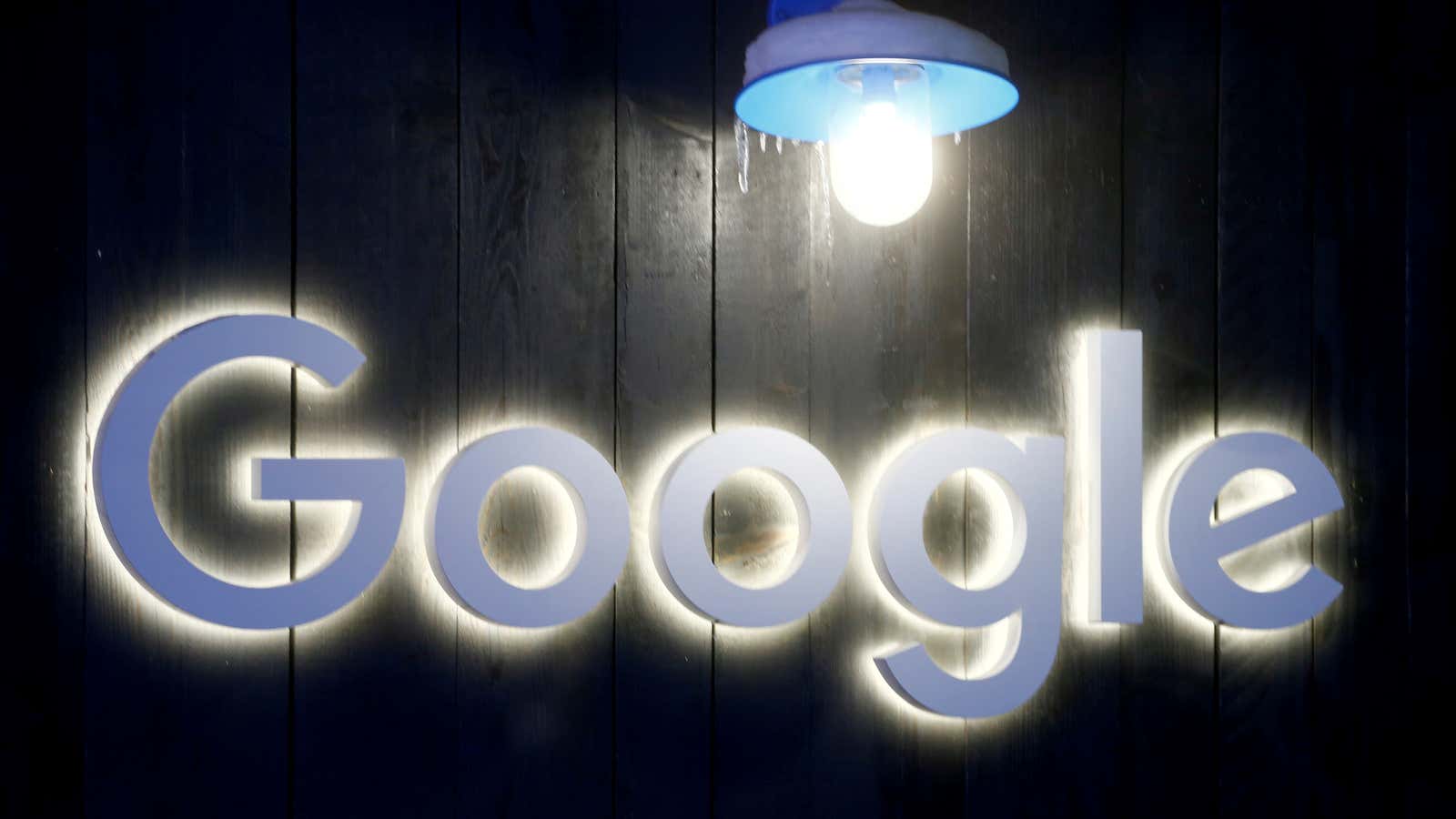The antitrust suit filed against Google by the US Department of Justice this week contains echoes of the government’s case against Microsoft 22 years ago, but it will hinge on the ways in which the two cases are different.
Google’s defense will include its longstanding mantra that “competition is only a click away”—or, as the company said in a statement this week, “you can easily download your choice of apps or change your default settings in a matter of seconds—faster than you can walk to another aisle in the grocery store.”
Microsoft couldn’t say that. If the Windows operating system was driving you crazy, you couldn’t switch to the Mac OS, the top competitor at the time, without buying a new (and expensive) computer. By contrast, Google is basically right that it’s usually easy to switch search engines, though it takes at least a few clicks to do so. Those low “switching costs” are a central reason why some experts reject the idea of Google as “the new Microsoft.”
But proving that competition is a click away is not the same thing as proving that a market is competitive. Whether or not that defense is enough for Google to win this case, it’s important to understand the difference.
For competition to work well, consumers need to be able and willing to switch to better products, and new competitors need to be able to enter the market. It hardly matters how few clicks it takes to switch if there aren’t any decent options worth switching to. And in the market for search engines, data is a powerful barrier to entry.
“Many of the queries that a search engine receives each day will be ones that the search engine has never previously seen,” wrote Megan Gray, the general counsel at the search engine DuckDuckGo in a 2019 statement to the US Congress. “As a search engine’s market share grows, the percentage of new searches on that search engine will diminish.” In other words, the bigger you are, the easier it is to serve good search results. That, in turn, deters switching. If everyone switched to a new search engine it might have a chance, but no single user has an incentive to switch to what is, at first, a clearly inferior product.
🎧 For more intel on the Google universe, listen to the Quartz Obsession podcast episode on Google docs. Or subscribe via: Apple Podcasts | Spotify | Google | Stitcher.
Then there’s the fact that “one click away” is still quite a distance. The US government’s case revolves around Google paying companies like Apple to be the default search engine in browsers and on smartphones, which raises the question of how much defaults matter. Standard economic models assume that a user switches when it’s in their interest to do so, which simply isn’t the case. In their book Nudge, Richard Thaler and Cass Sunstein call this the “yeah, whatever” heuristic: We mostly just go with the default option. “If, for a given choice, there is a default option…then we can expect a large number of people to end up with that option, whether or not it is good for them,” they write.
The “yeah, whatever” heuristic and other findings from behavioral economics have made waves in social science, but unfortunately they haven’t had as much impact on antitrust. US courts are unlikely to recognize the barrier that “a click away” truly represents.
Google gets it, though, which is why it pays billions to be the default. If just being better was enough, why not let Apple strike a deal with Bing or DuckDuckGo, and trust that users would click their way to the better product?
“There will always be some degree of pure consumer inertia and loyalty… due in part to our human limitations,” economists Hal Varian and Carl Shapiro wrote in their 1999 book Information Rules. “These costs may seem small,” they note in the same chapter, “but ask yourself how often you shop around for a new travel agent, insurance agent, or bank. Do you really know you are getting the best deal possible?” Three years after the book was published, Varian took a job at a then-tiny startup called Google.
